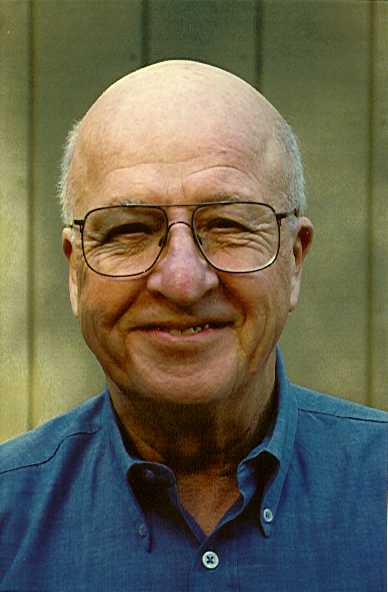|
|
Home Page |
Dear web visitor, Norman Holland, my father, died Sep. 28th, 2017. We are keeping this site as he left it in his memory and for your reference.
John Holland
(son of Norman Holland)
All my life, I've been fascinated by the way people relate to literature and the arts. As a result, I have been teaching and writing about psychoanalytic psychology, cognitive science, and what they tell us about the responses of readers to literary texts, movies, and occasionally the other arts. You’ll find a brief vita here.
Currently, I'm building a web page devoted to enhancing people’s enjoyment of movies. So far, I've written over a thousand pages about thirty-some movies. The site is called “A Sharper Focus” and you can find it at https://www.asharperfocus.com.
Over the last several years, I've gotten intensely interested in what neuropsychology has to say about the literary process. My most recent book, Literature and the Brain tells how our brains function in special ways when we are “transported” by a story, a poem, a play, or a movie. We no longer sense our bodies or our environment. We do not disbelieve the most improbable things, and we feel real emotions towards people and situations that we know are quite unreal. Literature and the Brain explains that our brains behave in this special way because we know that we cannot act to change the work of art. We shut down our motor systems. and, with them, reality-testing and inhibitions. The book goes on to address some basic questions about literature. What makes us sense some language as literary? What does it mean when we say a literary work is good or great or awful? What brain states account for literary creativity? Why have all cultures in all times, so far as we know, had some form of language art? You can learn more about the book or order it here
My 2006 book Meeting Movies explores the relation between ourselves and literary works in a quite different, quite personal way. It combines interpretations of eight classic movies with the associations and memories that explain why I perceive the movies as I do. You can order the book directly from Amazon.
I've provided here a bibliography of my articles.
I've written in all fifteen books, two of which I've put online. One is a magnum opus: The I, an ambitious book that develops a model of human nature itself. There is also online a Spanish translation of this book, El Yo.
The other is The Critical I, a vigorous critique of the "disappearance of the subject" with such oddments as a reader-response study of reactions to a porn film and seven critical analyses of “Thirty Days Hath September.”
You can also obtain online a 2008 book Murray Schwartz and I produced: Know Thyself: Delphi Seminars. It describes and demonstrates a method we developed for teaching literature, psychoanalysis, or anything, really, in an interpersonal way. Delphi seminars make subject-matter meaningful. What am I getting from this material? Does it matter to me and why? You can order the book here.
The University of Florida Library has also (as part of an experimental project) graciously put some of my books online. Here are the URLs:
The First Modern Comedies (1959)Electronic resourceThe Shakespearean Imagination (1964)
note-the University no longer has this, but this is a link to it on Amazon.Electronic resource (JPEG)Psychoanalysis and Shakespeare (1966)
Electronic resource (PDF)Electronic resource (JPEG)The Dynamics of Literary Response (1968)
Electronic resource (PDF)Electronic resource (full text)5 Readers Reading (1975)New edition, Transction Publishers,replacing library textLaughing, A Psychology of Humor (1982)Electronic resource (JPEG)The I (1985)
Electronic resource (PDF)New Edition, Transaction Publishers,replacing library textThe Brain of Robert Frost: A Cognitive Approach to Literature (1988):
Electronic resource (full text)Holland's Guide to Psychoanalytic Psychology and Literature-and-psychology (1990):Electronic resource (JPEG)Shakespeare's Personality (1989). Edited with Bernard J. Paris and Sidney Homan:
Electronic resource (PDF)Electronic resource (full text)I began teaching and writing in 1956. Back then, I thought there were fairly fixed ways we respond to literature (the New Critical stance). I decided psychoanalysis was the best way to understand those responses. Testing this hypothesis, though, led to a revelation. Readers re-create texts in their own minds, sometimes very differently from what you might expect. Since then, I've explored, in addition to psychoanalytic psychology, cognitive and brain science to see how all three could combine to create a more telling picture of our relations to literature and, indeed, of human nature.
I've put online an intellectual autobiography, a short version and a longer, more personal version, to explain how I came to hold the ideas I do, or you can just get the ideas without the history.
And, if you like your ideas sugar-coated (who doesn't?), you can read my detective novel, Death in a Delphi Seminar, which explores some of this thinking in the context of a murder in a reader-response seminar.
In years past, I've taught Shakespeare, comedy and theories of comedy, classic and contemporary films, and Freud, at both graduate and undergraduate levels.
Nowadays, I do a lot of work with the
PsyArt Foundation.
I also moderate PSYART, the online discussion group for the psychology of the arts. This is a quite active list with about 600 subscribers.
I also founded and, until recently, shared the editing of PsyArt, a journal that deals with the psychological study of the arts. It is an archived, peer-reviewed journal, free to all Internet users. It began publishing in mid-1997.
